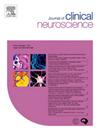Language and neurological assessment in stroke: Rethinking the role of linguistic proficiency in clinical outcomes
IF 1.9
4区 医学
Q3 CLINICAL NEUROLOGY
引用次数: 0
Abstract
This correspondence underscores the potential impact of language proficiency on clinical outcomes in patients with acute ischemic stroke (AIS), especially those experiencing large-vessel occlusion (LVO). Citing recent findings that non-English-speaking patients often present with more severe symptoms and poorer discharge outcomes despite receiving comparable treatment, this commentary examines how linguistic barriers may confound clinical assessments such as the NIHSS. From a psycholinguistic perspective, language functions not merely as a medium of communication but as a cognitive instrument that actively shapes the expression of symptoms. We advocate for the incorporation of linguistic competence into stroke assessment protocols to promote equity and diagnostic precision in neurology.
卒中的语言和神经学评估:重新思考语言能力在临床结果中的作用
这一对应强调了语言能力对急性缺血性卒中(AIS)患者临床结果的潜在影响,特别是那些经历大血管闭塞(LVO)的患者。引用最近的研究结果,非英语患者尽管接受了类似的治疗,但往往表现出更严重的症状和更差的出院结果,这篇评论探讨了语言障碍如何混淆NIHSS等临床评估。从心理语言学的角度来看,语言不仅是一种交流媒介,而且是一种积极塑造症状表达的认知工具。我们提倡将语言能力纳入卒中评估方案,以促进神经病学的公平性和诊断准确性。
本文章由计算机程序翻译,如有差异,请以英文原文为准。
求助全文
约1分钟内获得全文
求助全文
来源期刊

Journal of Clinical Neuroscience
医学-临床神经学
CiteScore
4.50
自引率
0.00%
发文量
402
审稿时长
40 days
期刊介绍:
This International journal, Journal of Clinical Neuroscience, publishes articles on clinical neurosurgery and neurology and the related neurosciences such as neuro-pathology, neuro-radiology, neuro-ophthalmology and neuro-physiology.
The journal has a broad International perspective, and emphasises the advances occurring in Asia, the Pacific Rim region, Europe and North America. The Journal acts as a focus for publication of major clinical and laboratory research, as well as publishing solicited manuscripts on specific subjects from experts, case reports and other information of interest to clinicians working in the clinical neurosciences.
 求助内容:
求助内容: 应助结果提醒方式:
应助结果提醒方式:


